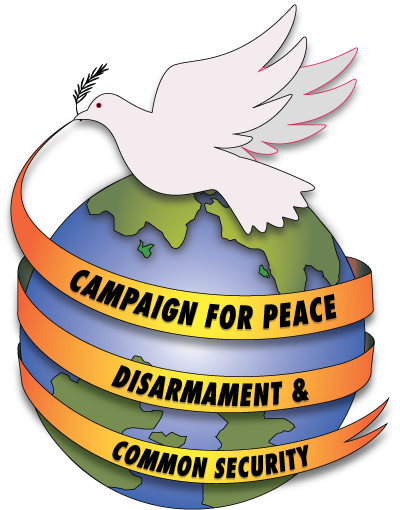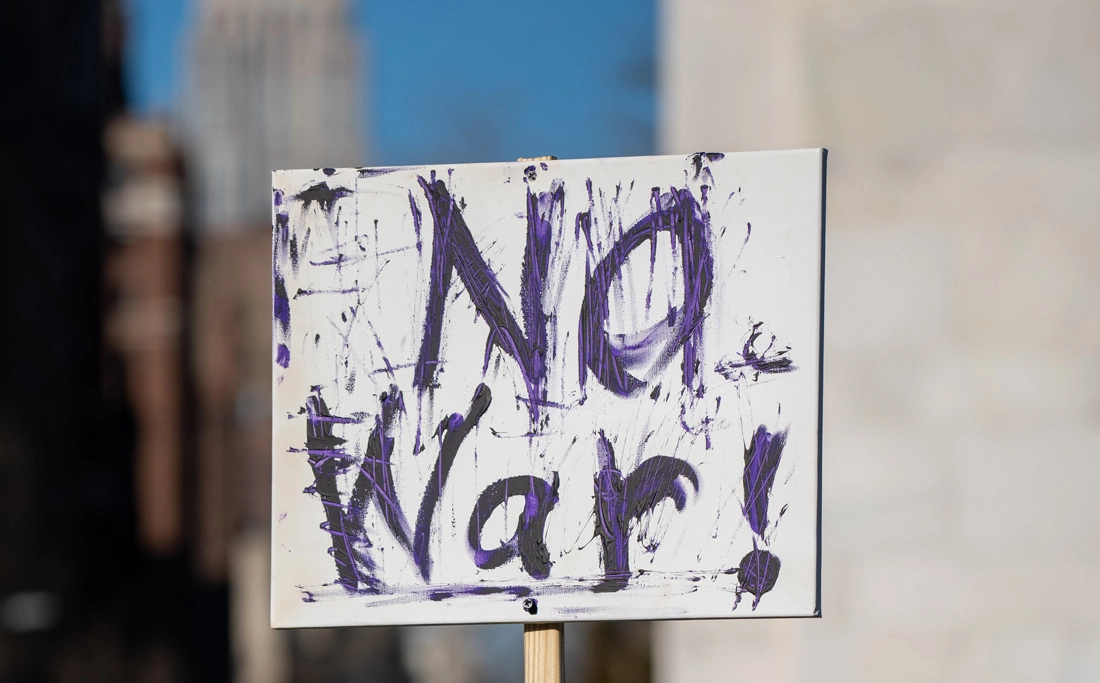Owen Tudor
I’m pleased and honoured to have been invited to speak today to lend the support of the global Labor movement to the call for a new or maybe a *renewed* approach to peace.
The International Trade Union Confederation represents 207 million members in over 150 countries. We have members in the countries that have been immiserated by conflict and also in the industries which make weapons of mass destruction.
Our affiliates in Germany and Japan have led our work on peace, not least because of their national experiences of war, but our membership in the nuclear and arms industries brings a rather different perspective to our engagement in the peace movement.
Nevertheless, our founding principles, set out in our constitution, commit us to “a world free of weapons of mass destruction and to general disarmament” and rejecting “recourse to war to resolve conflict.”
Our members are concerned about the deterioration described this morning: the state of the global arms race, the retreat from multilateralism and the increasing role of big money in the armaments industry, as Achin [Vanaik] said, the corporate interests.
Our member unions are particularly concerned about the growth of racism, nationalism and xenophobia promoted by and fueling the tough guys – the right wing populists – who are driving the current phase of escalating confrontation.
Peace, along with democracy and rights, is one of the four pillars for action that we have set for ourselves coming out of the Copenhagen Congress we held in December.
We want to see the Treaty on the Prohibition of Nuclear Weapons enter into force, as well as defending the Comprehensive Test Ban Treaty and the Nuclear Non-Proliferation Treaty, although we understand the drawbacks of both. And even the Arms Trade Treaty, given Donald Trump’s recent statements, needs our backing.
That threat emphasizes that our concerns are not just about nuclear weapons. Weapons of mass destruction also include cyber, biological and chemical weapons, and so-called small arms can still wreak havoc in communities and war zones.
Above all we are concerned at the waste of trillions of dollars on weapons and war when our planet and its people face challenges like climate change, poverty, ill-health and growing inequality.
That money should be invested in rebuilding our social infrastructure, and tackling low pay. It should be funding what we call a ‘just transition’. to a carbon free economy and a fourth industrial revolution that puts people first.
And just transition also applies to those members of ours who are employed in the weapons industry. We want to see the conversion of the industry so that people’s livelihoods are protected and their skills utilised. It’s slightly more complicated than beating swords into ploughshares, after all, some of it really *is* rocket science, but the objective is the same.
So, what can the Labor movement bring to the peace movement, alongside the perspective I’ve outlined?
First, there’s our global reach. Over 200 million members in almost every country and territory in the world.
A presence in all sorts of workplaces and communities – including those people who don’t yet buy the arguments for peace, but with whom we have an automatic connection.
Second, we have an influence with politicians – not just on the left, especially in parts of Europe and Africa – and with employers, including putting our investment arm – workers’ pension funds – into play.
In 2017, we negotiated an International Labour Organisation Recommendation (205) on Employment and Decent Work for Peace and Resilience. We do, after all, promote negotiation over war as a way to resolve disputes. Next month, to show that our concerns go far further than nuclear weapons, we hope the ILO will adopt a convention against gender-based violence.
And third, we can campaign – preferably in alliance with other parts of the peace movement, like those gathered here today. Our time2act petition in support of the Nuclear Non-Proliferation Treaty gathered 6 million signatures, for instance.
The peace movement has always been strongest when it mobilises and unites with movements for – and this is not an exclusive list – social justice, equality and democracy. Those elements are critical to overcoming the temptations affecting members of the working classes.
This year, global unions will be stepping up our negotiating, our lobbying and our campaigning. Because the threat is real, present and growing. And we can’t live with it.
Let’s get on with it.
Owen Tudor is the Deputy General Secretary for International Trade Union Confederation (ITUC). Follow him on Twitter: Owen4ituc

